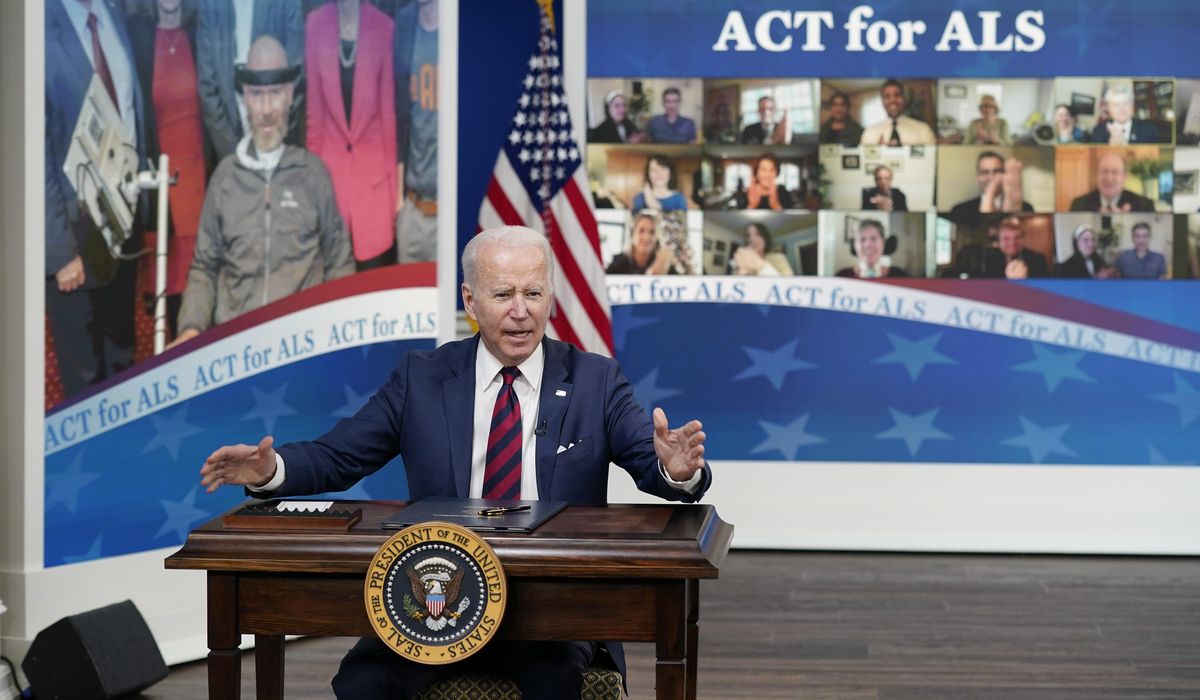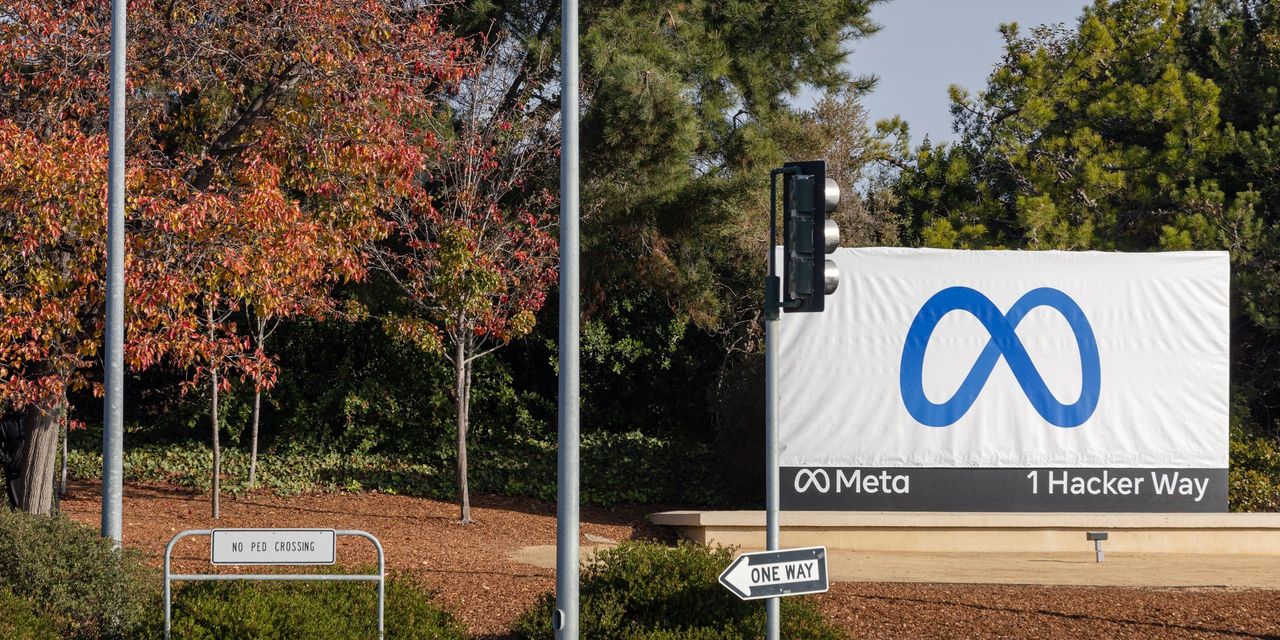
President Biden is stocking the federal judiciary with liberal judges at a faster pace than former President Trump filled the bench with conservatives, as he tries to appease a progressive base unhappy that he abandoned a plan to pack the Supreme Court.
The Senate has confirmed 40 of his judicial nominees this year, including 11 judges on the powerful federal courts of appeals. In 2017, the Senate confirmed 19 of Mr. Trump‘s judicial nominees, including 12 on the courts of appeals.
Mr. Biden has nominated 73 judges, one more than Mr. Trump in 2017. Among them are 21 former public defenders and 16 former civil rights lawyers.
A major difference is that Mr. Trump appointed Supreme Court Justice Neil M. Gorsuch, in his first year, while Mr. Biden has not yet had a vacancy to fill on the high court. Justice Stephen G. Breyer, 83, has resisted a campaign by progressives urging him to retire, and Mr. Biden‘s commission to study reforms of the Supreme Court didn’t take a position on adding seats, disappointing liberals.
“He‘s disappointed the progressive wing of the party, and he‘s not been enthusiastic about adding seats to the [Supreme] Court,” said Russell Wheeler, a Brookings Institution specialist on the judiciary. “It’s possible that one way he’s thought to placate that wing of the party is to make a lot of nominations of highly diverse nominees. Finding White males among his nominees is not an easy task.”
Mr. Biden‘s judicial nominees include 53 women (73% of the total), 20 Black Americans (27%), 15 Hispanics (20%), and 13 Asian American Pacific Islanders (18%).
Women accounted for 24% of Mr. Trump‘s judicial nominees over four years, and 16% of his appointees were Black, Hispanic, Asian American or another race or ethnicity, according to the Pew Research Center.
On Thursday, the president announced two more nominees for circuit courts. Judge J. Michelle Childs of South Carolina was nominated for the influential Court of Appeals for the District of Columbia and is considered a candidate to become Mr. Biden‘s first Supreme Court nominee, if and when a vacancy occurs.
Nancy Gbana Abudu, deputy legal director at the Southern Poverty Law Center, would become the first person of color on the Atlanta-based 11th Circuit Court of Appeals.
Carl Tobias, a law professor at the University of Richmond Law School, said Mr. Biden and the razor-thin Democratic Senate majority “have been exceptionally successful in accomplishing what they promised to do: countering Trump‘s effects, especially on the appeals courts, of confirming so many extremely conservative judges.”
He called the judges “well qualified, mainstream nominees who are diverse in terms of ethnicity, gender, sexual orientation, ideology and most critically experience.”
“Biden and the Dems have carefully limited the traditional substantial numbers of Big Law and prosecutor nominees, especially by tapping federal public defenders, civil rights attorneys, legal aid lawyers, etc.,” he said.
Part of Mr. Biden‘s success in getting his judges confirmed has been to focus on appointments in states with no Republican senators, Mr. Wheeler said.
“He’s sort of picking the low-hanging fruit because he’s going after vacancies where he doesn’t have to wrestle with Republican senators over their progress,” he said. “I think it’s pretty clear, partly because he chaired the [Senate] Judiciary Committee, he’s at home with this stuff.”
Senate Minority Leader Mitch McConnell said recently that Senate Majority Leader Charles E. Schumer, New York Democrat, is respecting the Senate‘s tradition of “blue slips,” in which district court nominees don’t get a hearing unless both senators from the particular state agree.
“I think that’s the right thing to do,” the Kentucky Republican told radio host Hugh Hewitt. “That’s been a strong Senate tradition over the years, and so, and we [Republicans] honored the blue slip … at the district court level during the Obama years, and I did during the Trump years.”
Conservatives have raised objections to Biden nominees such as Dale Ho, who was appointed as a district judge for the Southern District of New York, and Myrna Pérez, who was tapped for the Second Circuit Court of Appeals.
Mr. Ho, director of the Voting Rights Project at the ACLU, “is best known for fighting the Trump administration on its reinstatement of a question about citizenship on the census,” according to Carrie Severino, president of the conservative Judicial Crisis Network. The administration dropped the proposal in 2019 after encountering a hurdle at the Supreme Court.
In a blog post, Ms. Severino said Mr. Ho “has opposed basic measures to ensure integrity in voting, from voter ID measures to efforts to keep voter rolls up to date.” She also said the liberal advocacy group Demand Justice has Mr. Ho “on its own Supreme Court shortlist.” She noted that White House press secretary Jen Psaki and the president’s point person on judicial nominees, Paige Herwig, both formerly worked for Demand Justice, a liberal group advocating changes to the Supreme Court.
Demand Justice did not respond to a request for comment.
Judge Pérez spent 15 years working at the liberal Brennan Center for Justice, where she was director of voting rights. The Senate confirmed her on Oct. 25 by a vote of 48-43, making her the first Latina on the Second Circuit since Justice Sonia Sotomayor joined the Supreme Court in 2009.
During her confirmation hearing, Sen. Ted Cruz, Texas Republican, told her, “As I look at your record, year after year after year of being an extreme partisan advocate, I’m left with the very likely conclusion that if you were confirmed to the bench, you would likewise be a radical activist on the bench.”
The nominee said she would set aside her past advocacy on the bench.
“I am pledging to no longer participate in policy disputes, and instead I will impartially and objectively review the law, apply it to the record before me, and be faithful to the precedent both of the Supreme Court and the 2nd Circuit,” she said.
The Senate on Dec. 13 also voted 50-45 to confirm District Judge Lucy Koh of California for the Ninth Circuit Court of Appeals, making her the first Korean American woman to serve as a federal appellate judge. Judge Koh overcame GOP criticism of her ruling in February in Tandon v. Newsom, which denied relief to plaintiffs who challenged California’s COVID-19 restrictions on indoor gatherings by arguing that it prevented Bible studies and prayer meetings at their homes.
Judge Koh ruled that the state’s restrictions were “neutral and generally applicable,” and a Ninth Circuit panel upheld her decision. But the Supreme Court on April 9 granted the plaintiffs’ application for a preliminary injunction, pending the Ninth Circuit’s disposition of the appeal on the merits. The high court said in part that California was treating secular activities such as hair salons and movie theaters more favorably than at-home religious exercise.
The Senate this month also confirmed, 50-49, Judge Jennifer Sung, another veteran of the Brennan Center, for the Ninth Circuit. During Brett M. Kavanaugh’s nomination to the Supreme Court, she signed a letter to the Yale Law School administration calling him “an intellectually and morally bankrupt ideologue” and claiming that “people will die if he is confirmed.”
During her confirmation, under questioning by Sen. Tom Cotton, Arkansas Republican, Judge Sung said the letter’s statements were “overheated rhetoric, but they were rhetorical advocacy.
“If by signing that letter I created the impression that I would prejudge any case or fail to respect the authority of any Supreme Court justice or any of the court’s precedents, then I sincerely apologize,” she said.
Mr. Cotton asked her, “Has anyone died as a direct result of Brett Kavanaugh being confirmed to the Supreme Court?” She repeated her answer that the letter was “rhetorical advocacy only.”
Despite Mr. Biden‘s early success on judges, Mr. Trump‘s influence on the courts will be felt for decades. He appointed 54 federal appellate judges in four years, one short of the 55 appointed by President Obama appointed in eight years. Further, Mr. Trump “flipped” the balance of several appeals courts to Republican-appointee majorities.
Mr. Trump also swung the Supreme Court to a strong 6-3 conservative majority, appointing Justices Gorsuch, Kavanaugh and Amy Coney Barrett. All of them were age 55 or younger when confirmed to the lifetime terms.
At the start of 2021, Mr. Trump had appointed 28% of the 816 active judges serving in the three main levels of the federal court system.








